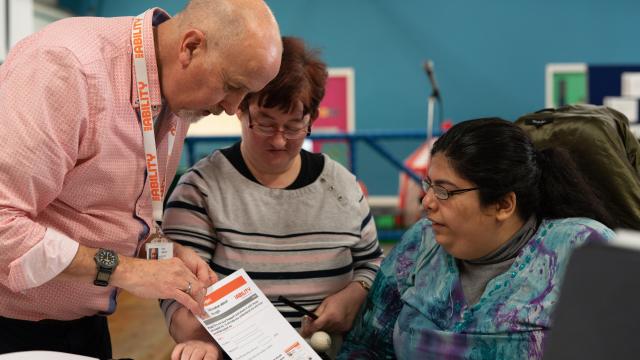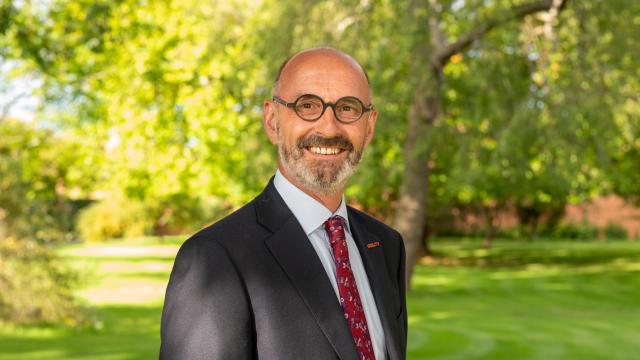
Championing better eye care in London
A blog from Trevor Hunter, SeeAbility's Eye Care Pathway Coordinator.
SeeAbility has been actively promoting the need for ease of access to eye examinations for people with learning disabilities and autistic people over the last 10 years.
It is known that people with learning disabilities are 10 times more likely to experience serious eye health issues including uncorrected refractive error.
Eighteen months ago, with the fantastic help of funding from the Vision Foundation, Grace McGill and I were given the opportunity to engage with all potential stakeholders in London to highlight the issues that this group have in accessing suitable sight tests within the community and explaining the types of adjustments that may be necessary to ensure suitable outcomes.
Grace is an Eye Care Champion and expert by experience having both visual impairment and a learning disability. I am a contact lens optician with many years of teaching experience. Together we have delivered presentations to borough learning disability teams, advocacy groups, GPs, optical practices, Local Optical Committees and hospital eye service teams.
We have engaged with Integrated Care Boards across London to make the case for commissioning of what is known as the “Easy Eye Care Pathway” using data on unmet needs gained from SeeAbility’s work in the Special Schools Eye Care Service across London.
This pathway provides for longer or multiple appointments through optical practices, who have undertaken training and are funded to provide a more individualised service, including support with glasses if needed.
Good news!
The good news is that Easy Eye Care is now available to people with learning disabilities and autistic people of all ages with a GP in Lambeth, Southwark, Lewisham, Bexley, Bromley or Greenwich.
Primary eye care pathways have been commissioned across many of the ICB regions in England. These include Minor Eye Condition Service, pre/post cataract, glaucoma and paediatric screening.
However, the Easy Eye Care pathway, which was developed by the Local Optical Committee Support Unit in collaboration with SeeAbility, Mencap and all the optical professional bodies, now needs to be promoted widely so people use the service. We have produced flyers, easy read information and a film, to let people know about the service and our promotion work will continue.
Importantly, the commissioner has created simple referral pathways for people to access the service via their GP, when discharged from hospital eye clinic or when children leave the Special School Eye Care Service.
These referrals, along with self-referrals feed into the local Single Point of Access which allocates people to an optician’s practice.
The service has gone live in South East London with a population of 2.1 million of whom some 9000 people are registered with their GP as having a learning disability and around 21000 autistic people are estimated to live in the area too.
It is hoped that the service will be replicated in the four other ICB regions of London very soon, adding to existing pathways in the North West of England and Durham. Our ambition is that there will be an Easy Eye Care pathway across each ICS in England in the near future which will complement the Special Schools Eye Care service which the Government have pledged to rolling out nationally in 2024/25.




